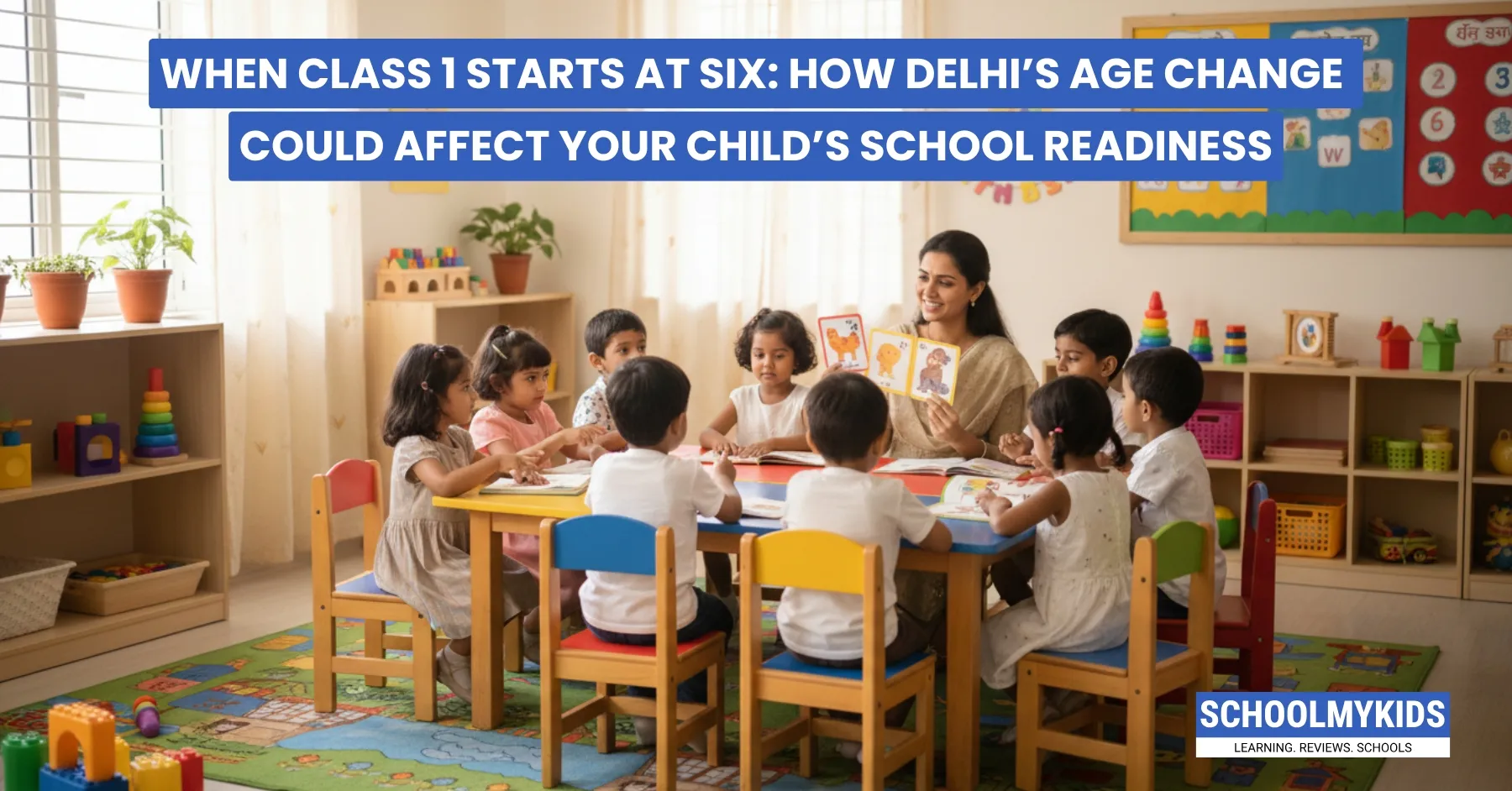If you're a parent in Delhi planning your child's school admission, here's something important you need to know. Starting from the 2026-27 school year, your child will need to be at least six years old to enter Class 1. No more rushing them into formal schooling at five or even younger.
The Delhi Directorate of Education just made this official through a circular sent to all schools, including government, aided, and private. And yes, this applies to everyone.
What's Actually Changing?
Right now, most Delhi schools follow a system where kids go through nursery and kindergarten before joining Class 1. Many children enter Class 1 when they're barely five years old.
The new rule changes this completely. Instead of two pre-primary years, there will now be three: Balvatika 1, Balvatika 2, and Balvatika 3. Think of these as the new foundation years for your child, which is similar to what nursery and KG used to be, but with an extra year added.
After completing all three Balvatika levels, your child will enter Class 1 only when they turn six. This aligns Delhi with the National Education Policy (NEP) 2020, which several other states like Karnataka, Andhra Pradesh, and Assam have already adopted.
Why Six Years Old?
There's solid reasoning behind this. The NEP 2020 and the Right to Education Act both say that six is the right age for formal schooling. Research shows that children's brains develop differently in those early years, and pushing them into formal academics too early might not be the best idea.
At age six, most children are better equipped to handle structured learning, sitting in classrooms, following instructions, and grasping concepts like reading and writing. Before that, their brains are still wired more for play, exploration, and hands-on activities.
The government wants these early years (ages 3 to 8) to focus on play-based and activity-based learning rather than textbooks and exams. That's the whole point of having three Balvatika years.
How Will This Roll Out?
Don't panic if your child is already enrolled. If they're in school during the 2025-26 session, the new rules won't apply to them. They'll continue as usual.
For everyone else, here's the timeline:
- 2026-27: Schools will admit kids who are six or above to Class 1, and three-year-olds to Balvatika 1.
- 2027-28: Balvatika 2 admissions begin for four-year-olds.
- 2028-29: Balvatika 3 admissions start for five-year-olds.
School heads can give up to one month's relaxation on age limits if needed. And if your child is transferring from another recognized school with proper documents, they'll be exempted from the rule.
What Does This Mean for Your Child?
This is a big shift for parents who've been planning admissions based on the old system. But we should also keep in mind that giving your child an extra year before formal schooling isn't necessarily a bad thing.
Kids develop at different rates. Some five-year-olds are ready to read and write. Others need more time to develop their motor skills, social skills, and emotional maturity. Starting Class 1 at six gives most children a better chance to be truly ready; not just physically sitting in a classroom, but actually understanding and enjoying what they're learning.
Early childhood experts have long said that starting formal education too early can sometimes create stress and anxiety in young children. An extra year of play-based learning might actually help your child build a stronger foundation.
What About Parents and Schools?
For parents, this means rethinking your admission timeline. That competitive rush to get your four-year-old into Class 1? It's gone. You'll have more time, which could reduce some of that admission season stress.
But yes, it also means an extra year of pre-primary education, which could mean extra fees for private school parents. That's a valid concern, especially for families already stretched thin.
For schools, this is a bigger operational change. They need to create space and resources for three Balvatika levels instead of two. Teachers will need training in play-based learning methods. Infrastructure needs upgrading. That's why the phased approach gives schools time to prepare.
The Bigger Picture
Delhi is catching up with national policy and joining other states that have already made this shift. This creates uniformity across the country, which is helpful if families move between states.
The change also reflects a growing understanding that childhood isn't a race. Learning doesn't have to be rushed. The early years should be about curiosity, creativity, and confidence, and not cramming and competition.
Will this solve all problems in education? Of course not. But it's a step toward building a system that respects how children actually learn and grow.
Conclusion
If you're a Delhi parent, start planning with this new timeline in mind. Talk to your child's current school about how they're preparing for the change. And remember, giving your child that extra year isn't holding them back. It might just be giving them the time they need to truly move forward.









Be the first one to comment on this story.